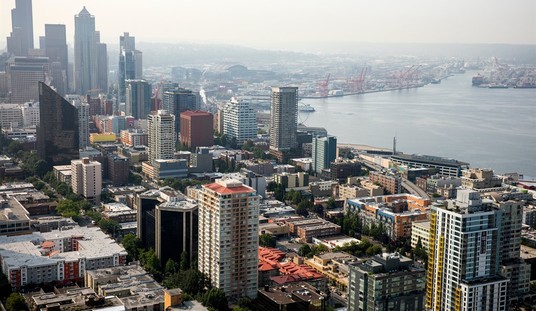Perhaps Joint Chiefs of Staff Chairman Gen. Martin Dempsey did not intend to make the startling admissions he did when he appeared on ABC News on Sunday morning. Perhaps the chairman did not seek to confirm for the public that the Islamic State’s advance in Iraq has been more effective and wider spread than previously reported. Maybe he did not set out to corroborate the increasingly evident fact that the coalition air war against ISIS is failing to achieve its objectives. He probably did not want to do these things, but that is what he accomplished.
Reports broke late last weeks that the United States had dramatically shifted tactics in Iraq when they introduced Apache attack helicopters into that theater of operations. They were reportedly used in assaults on Islamic State mortar teams and other personnel near the city of Fallujah, according to a spokesman for Central Command. That infamous city lies 73 kilometers from Baghdad.
But, in his appearance on ABC, Dempsey said that those Apaches were used to stem an assault on Iraqi forces which were protecting a clear pathway to Baghdad’s airport.
“The tool that was immediately available was the Apache,” Dempsey told Raddatz. “This is the case where, you’re not going to wait till they’re climbing over the wall.
“They were within 20 or 25 kilometers,” he added.
“Of the Iraqi airport?” Raddatz clarified.
“Sure,” the chairman replied. “And, had they overrun the Iraqi unit, it was a straight shot to the airport. So, we’re not going to allow that to happen. We need that airport.”
The admission that Baghdad’s airport was under a direct threat of siege from the advancing ISIS fighters as much as a week ago, well before it became widely reported that the Islamic State was mounting a two-front assault in both northern Syria and in Iraq’s Anbar province, is significant. It had previously been reported that the Apaches deployed to Baghdad could be used to defend Baghdad and the infrastructure around that city, but this was the first time it has been confirmed that they were.
Secondly, Dempsey tacitly confirmed that America’s air-power-only strategy aimed at halting ISIS’s advance is failing. The flexibility demonstrated by coalition forces approving the use of close support platforms like Apaches which put U.S. service personnel in direct risk of taking fire from ISIS forces suggests that the American commitment to “no troops on the ground” is not as rigid as the president would have the public believe. That tactical elasticity is only good news because, apparently, ISIS has been laying the groundwork for a siege of Baghdad for far longer than was originally reported.
Today, reports indicate that ISIS is within walking distance of the center of the Iraqi capital. They are stationed 8 miles outside of Baghdad and, because many are armed with sophisticated surface-to-air MANPADs, the threat incoming and outgoing air traffic around Baghdad’s airport is already real and pressing.
Dempsey’s admissions on Sunday were clarifying and confirmed what many believed to be true about the ailing coalition air campaign against ISIS. Barack Obama could not have been happy with his Joint Chiefs chairman but, then again, it wouldn’t be the first time Dempsey has subtly undermined his boss’s determination to conduct a halfhearted war.








Join the conversation as a VIP Member